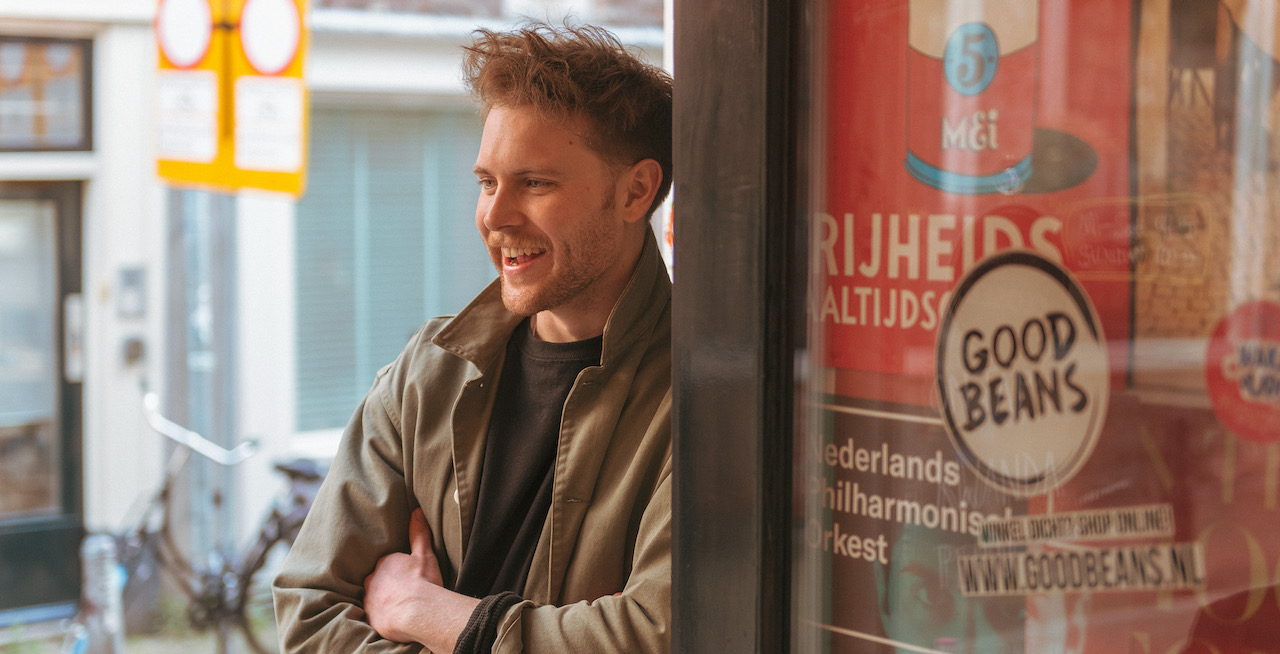
Languages and coffee are the same in essence. A comfortable world with “the strong” brand name.
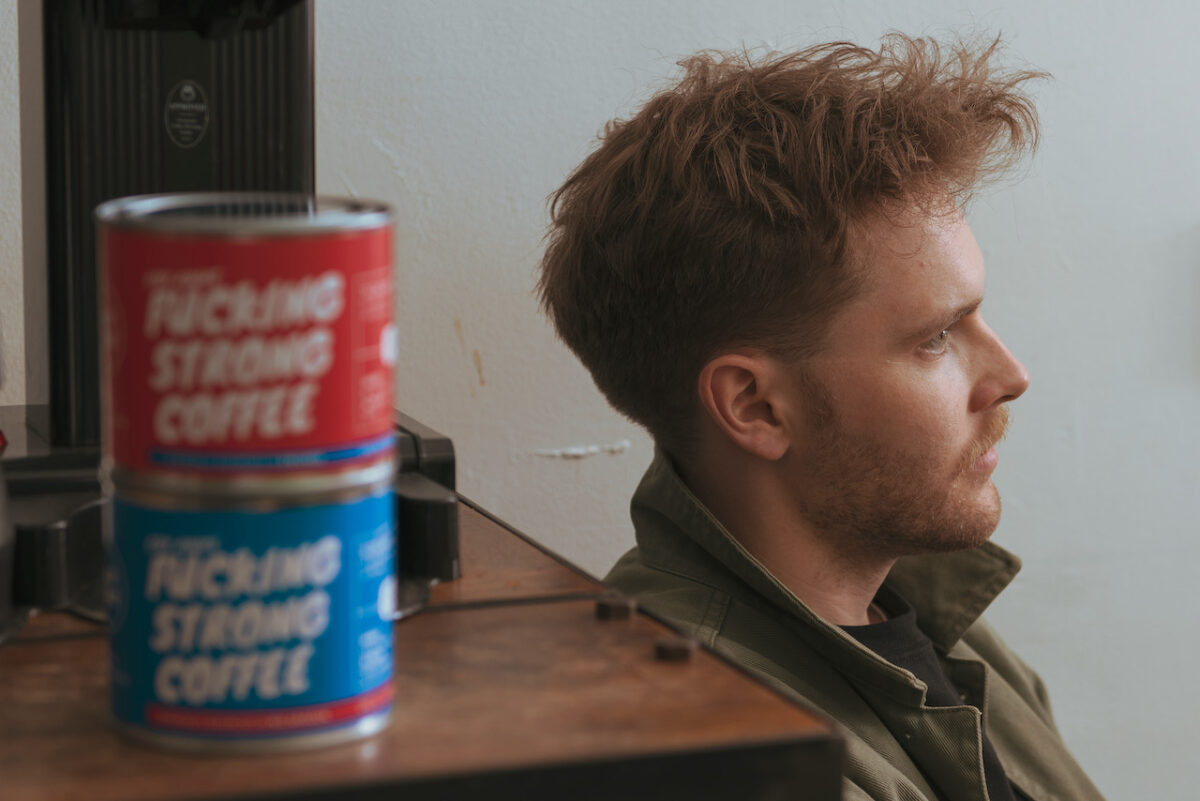
Good Beans sells specialty coffees under the impactful brand name ‘Fucking Strong Coffee.’ We interviewed the co-owner, Cody. Cody entered the specialty coffee industry by accident after studying literature in college and graduate school. He says the coffee industry is ‘boring and dull.’
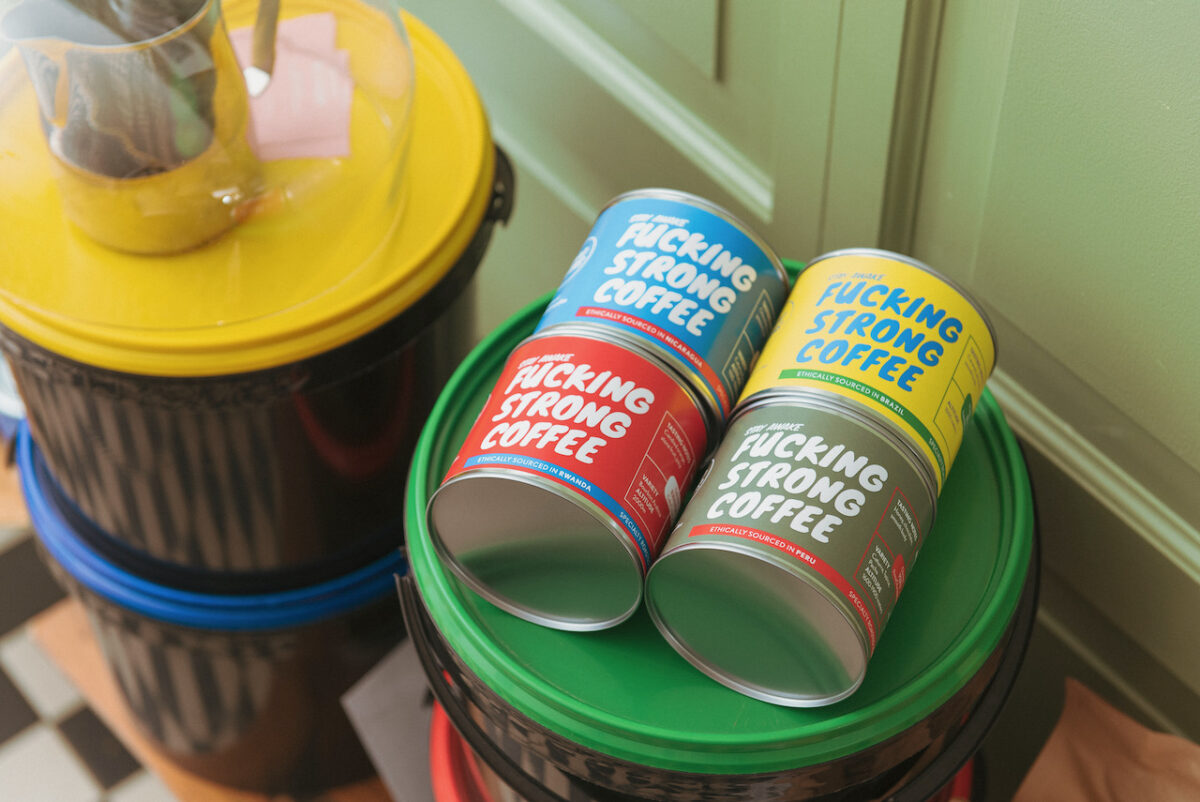
Creating alternatives; ‘Declaration of Independence’
We don’t like snobbish specialty coffee brands and this is why we started our own independent and unique brand. In a way, this is our “Declaration of Independence” against what has become the standard attitude and image of specialty coffee.
Cody states, “Let me tell you, I think specialty coffee itself is wonderful. Its quality, attention to detail, traceability, culture, roasting, and origin partnerships. These are the irreplaceable values of our beloved specialty coffee. However, unfortunately, the language, brands, images, and social feeds we see in the specialty coffee industry today are monotonous, boring, and lack creativity. There is also an increasing use of technical and descriptive terms like ‘anaerobic fermentation’ and ‘juicy’ that not many people understand.”
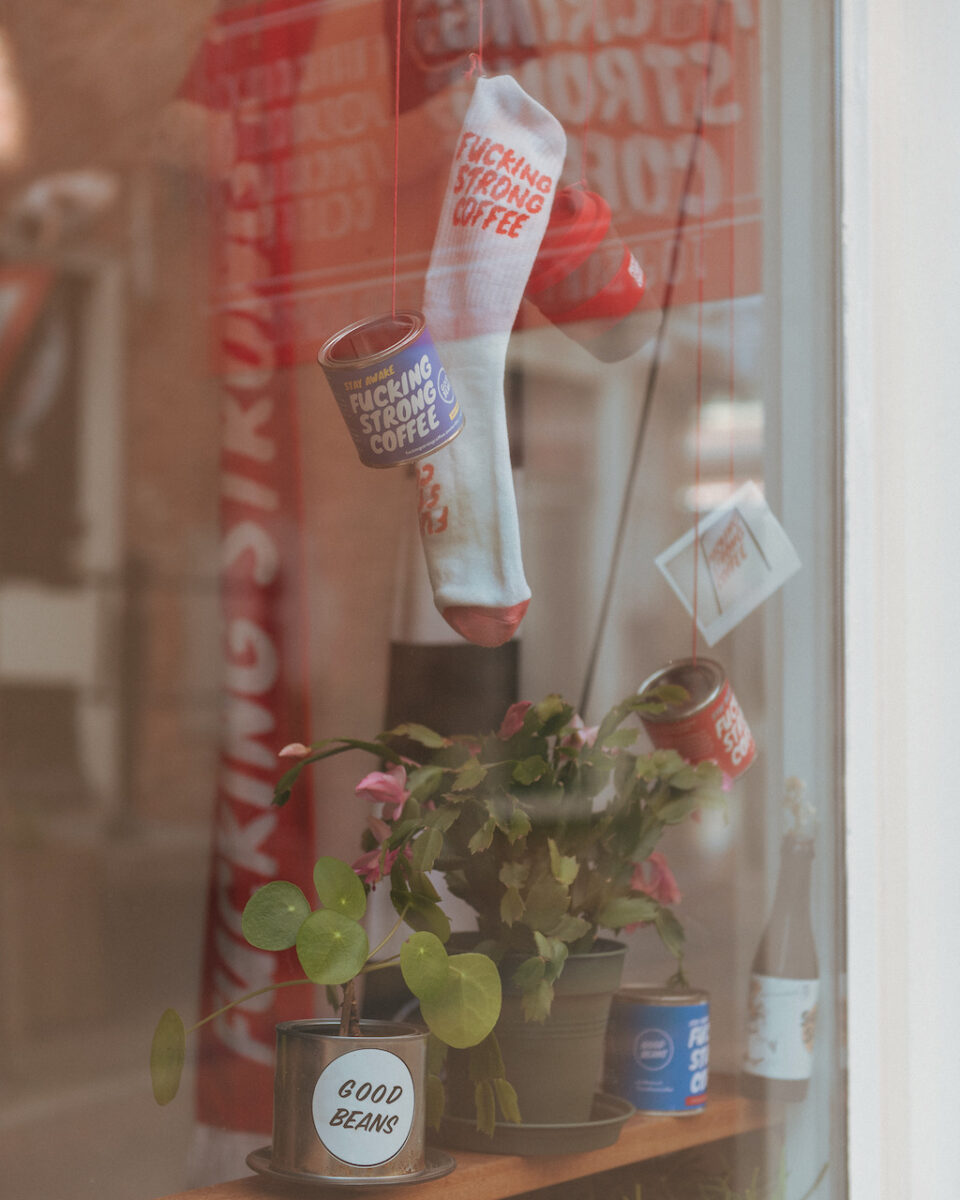
“Moreover, there is even a misconception about specialty coffee in Europe that it is a luxury item that only the wealthy can afford or that only enthusiasts’ drink. Like fine expensive wine, there is a widespread tendency to make it seem snobbish and pretentious.”
“Everything we do at Good Beans is to challenge trends. And through our in-house brand ‘Fucking Strong Coffee,’ we’re not just complaining but we’re acting on our thoughts.”
They use refillable cans as coffee bean containers instead of disposable plastic ones and record their independent tasting comments to create alternative products which are a ‘Declaration of Independence’ for Good Beans. The phrase ‘It’s coffee, not caviar.’ and their brand name of ‘Fucking Strong Coffee’ symbolizes this.
Cody states, “It’s our strategy to surprise people, who visit our store because they are attracted to the brand name with high-quality coffee. Some people may find that we are challenging them by using slang like ‘fucking’ as a brand name instead of a minimalistic logo, but I am more optimistic.”
“If we are a little more creative in the way we send messages, more people will become aware of the appeal of specialty coffee. In short, this is “a positive challenge” to see how we can lower the bar for specialty coffee through words.”
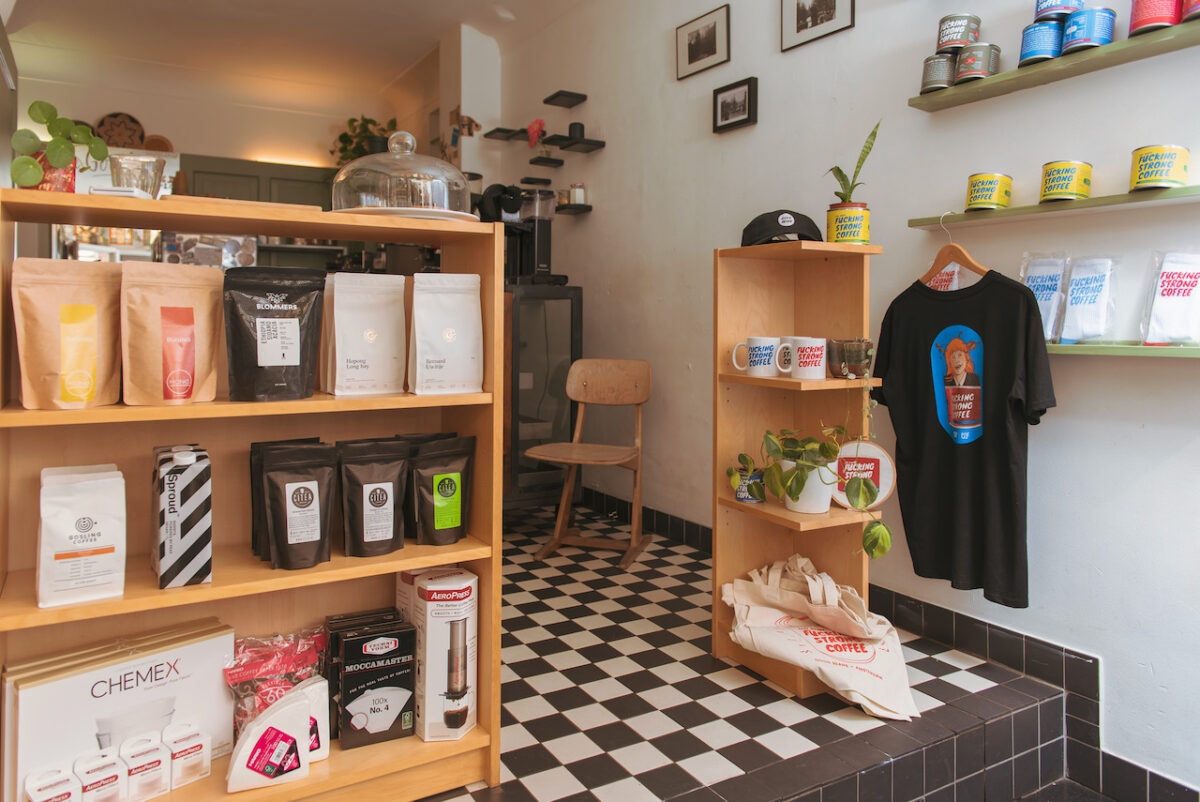
Cody says that there are three main types of customers at Good Beans.
“First, there are people who like our simplicity and the taste of coffee but don’t know much about specialty coffee. Secondly, some people simply like the atmosphere of the store and are looking to ‘feel connected to someone else.’ Lastly, “coffee nerds” who enjoy our shared passion for the quality, ethical sourcing, and sustainability. Having these three types of people visiting the same store is exactly what I envisioned when I created this store. I love the moment when I can feel that all kinds of people are attracted to this place.”

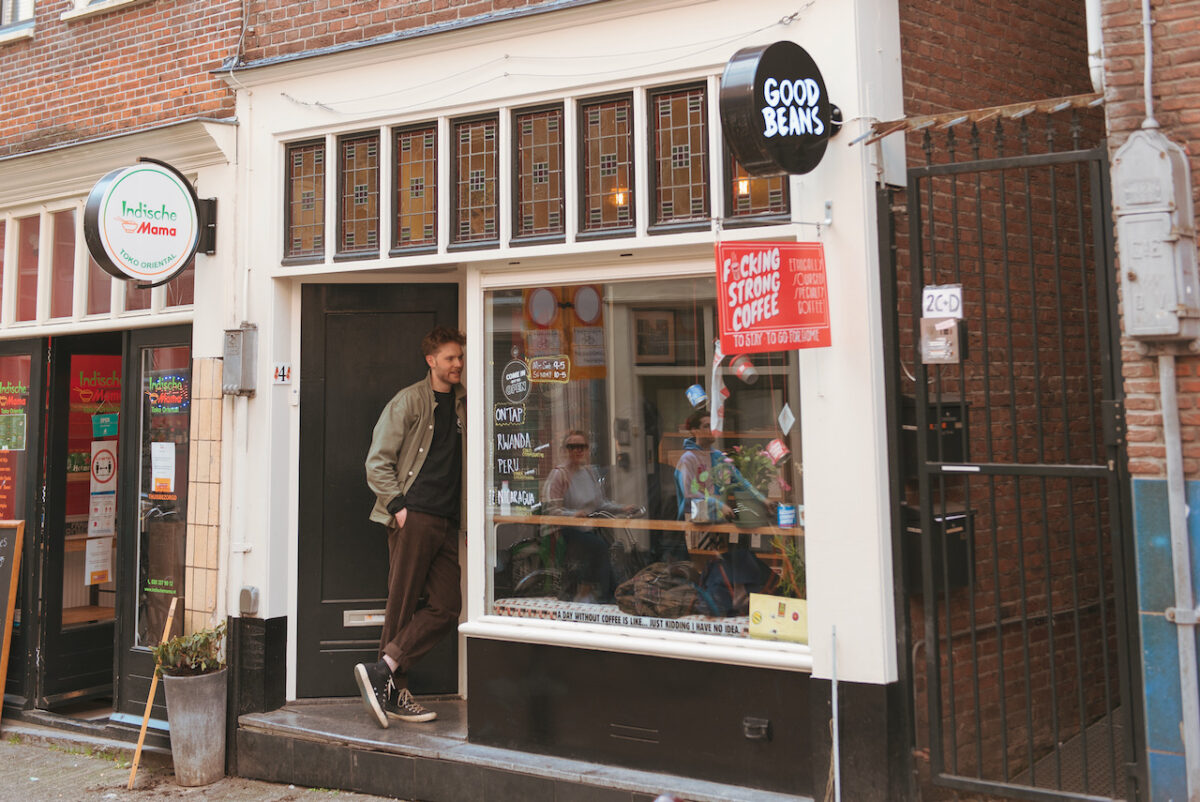
Although Cody had always been interested in specialty coffee, hospitality, and the food and beverage service industry, he started working in this field “by accident.” After graduating from college in the United States in 2017 and earning a master’s degree in Literature from a graduate school in the Netherlands the next year, he had no intention then of pursuing it as a career.
However, his life took an unexpected turn when he happened to take over a small store in Amsterdam with a business partner. He decided to reopen the store as a specialty coffee cafe. While this idea was taking shape, a visit to Rwanda to buy green coffee directly from producers determined the path that Cody would take.
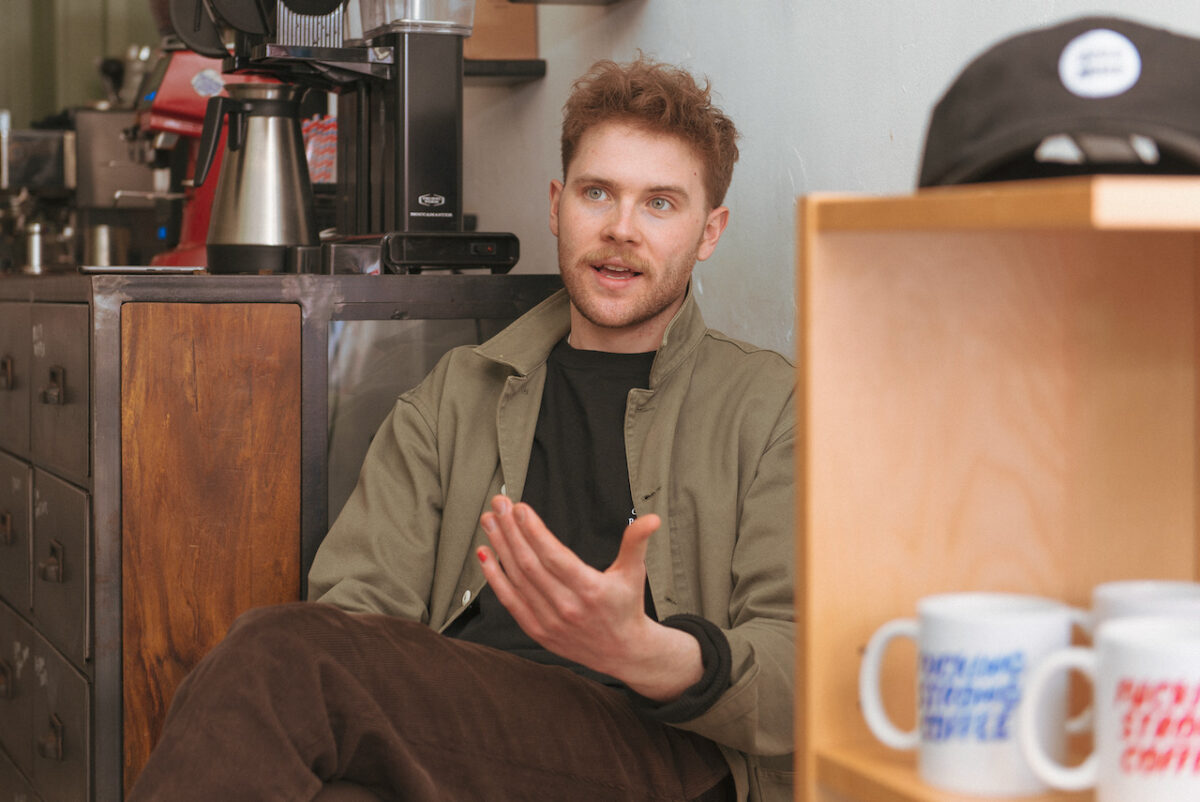
He states, “I was inspired by the genuine entrepreneurial spirit of the people I met there who were involved in the coffee supply chain,” Cody states. To develop the business of a cooperative that consists of small producers, they invest in new honey processes and try them out by paying close attention to the quality of the coffee. It was their independent way of life that really moved me.”
During his two-week stay in Rwanda, he visited a cooperative called Twongerekawa Coko with a local coordinator/exporter, interacted with the producers, and there was one scene that he couldn’t forget:
After visiting the cooperative’s washing station, the head of the cooperative invited Cody and the coordinator/exporter for lunch in the neighboring village. They enjoyed grilled goats that had been running beside them a few minutes earlier and traditional dishes such as boiled bananas and Rwandan beer. It was refreshing to experience the local lifestyle and culture firsthand and interact with the producers.
Different environments, different types of people, and different food. Cody’s interest was piqued by the reality before him, but it was a comment from the head of the cooperative that woke him up. As the banquet was coming to a close, the head of the cooperative asked Cody a direct question, ‘So…, how much green coffee are you going to buy?’
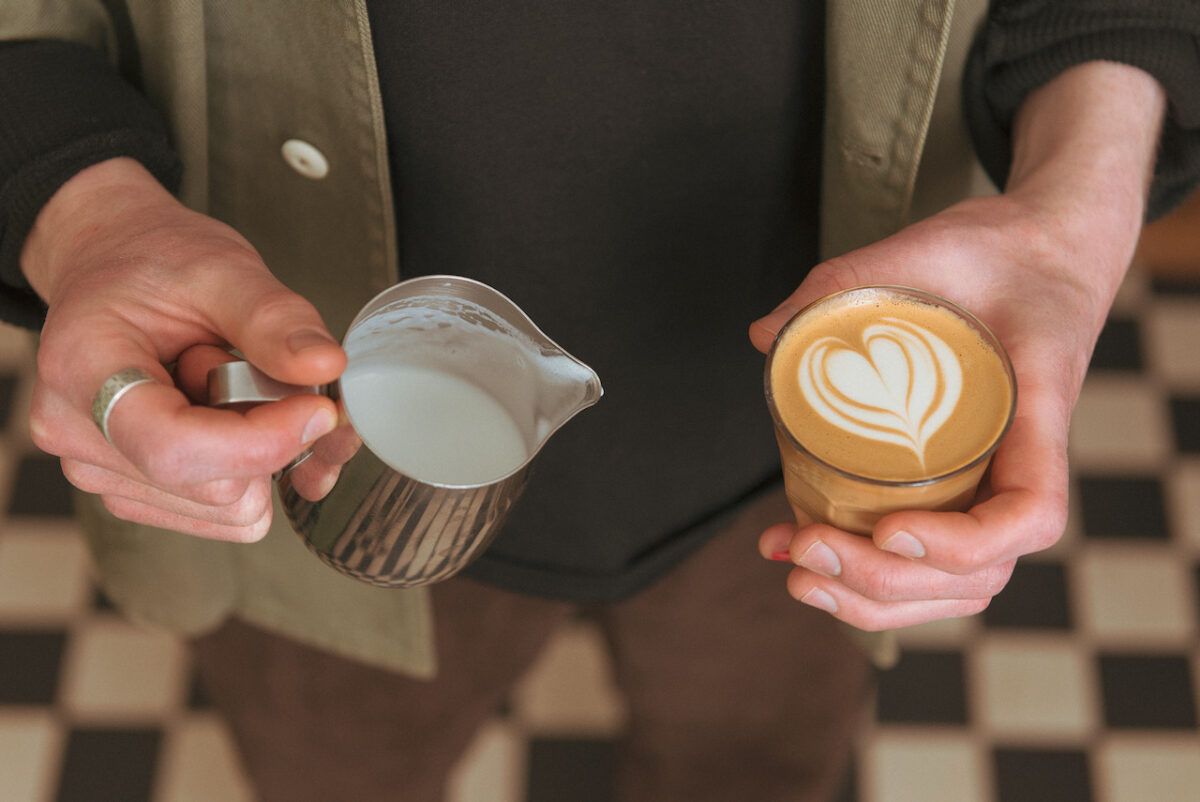
“He had been speaking in the local language through an interpreter but suddenly he spoke directly to me in English. I took it as a simple message, ‘We’ve done the hard work to produce a beautiful product and now it’s up to you.’ ”
“‘I understand it now. It is not only simply visiting cooperatives or selling coffee to the world, it’s about telling people who will buy the coffee about the stories of coffee producers. While building partnerships with the coffee origins, we build the brand, store, space, and experience. Specialty coffee is the kind of work I want to do and the kind of world I want to be in.’ The moment I realized it completely, the wheels in my head started turning around and running,” Cody states.

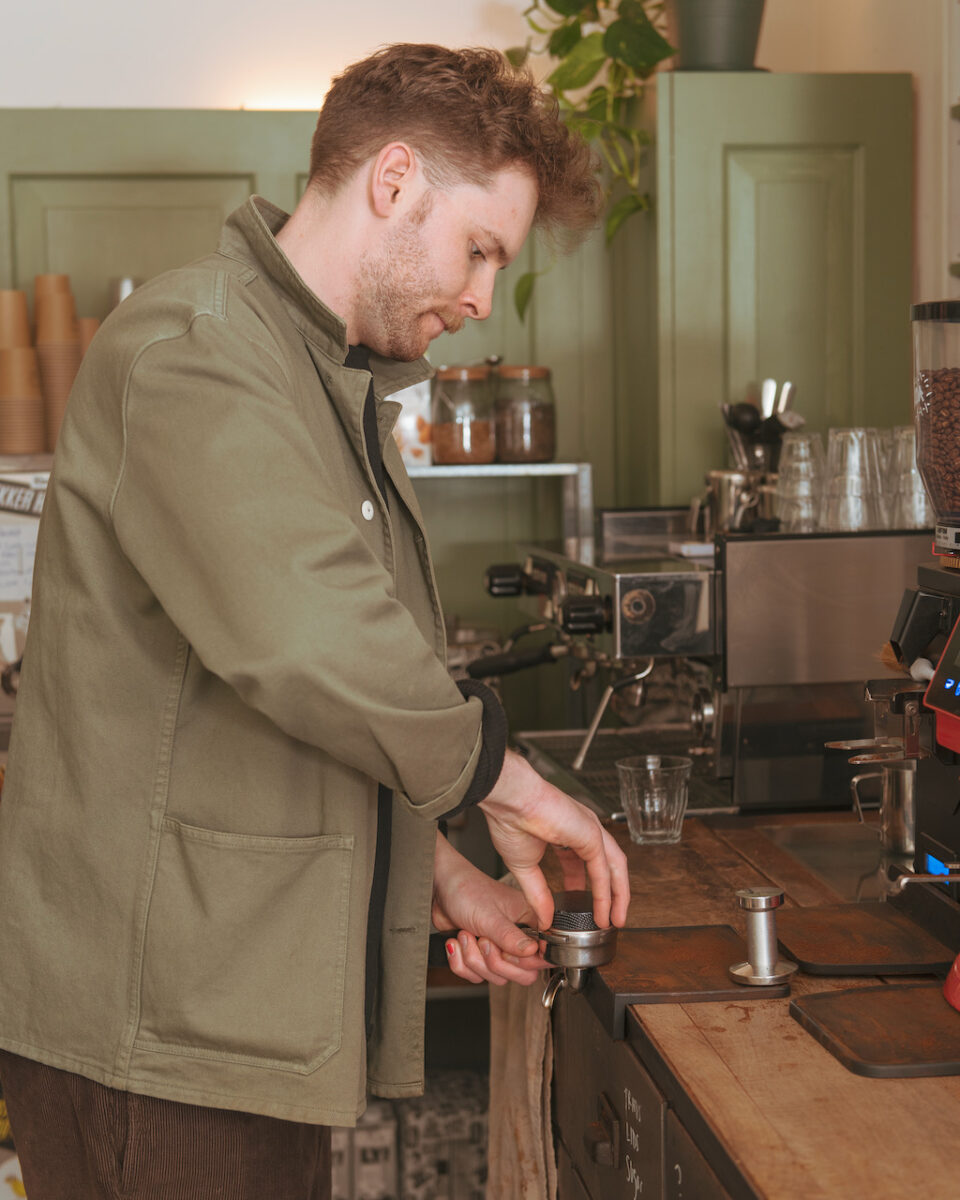
‘Empathy for others’ deepens through words.
Cody has been fascinated by the world of literature and fiction and has read a wide variety of books since he was a boy and started studying literature in both college and graduate school. This fascination still lives on as part of his work.
“The humanity depicted in literature and books can be very abstract and I think that’s where a high level of empathy is developed. Empathy can be cultivated by reading stories written by others, experiencing the perspectives of others, and deeply analyzing how the writer presents his or her world to readers. The real joy of studying literature was that I could deepen my understanding and empathy for others through this process,” Cody states.
Although some people see literature as ‘not a practical discipline,’ Cody says, “It can help you develop practical communication skills.”
Cody states, “It can also help you develop practical communication skills and such an approach is useful when we operate ‘Fucking Strong Coffee.’ I’m driven to answer a question of how to describe specialty coffee in a way that makes it more accessible and approachable to people and how to create a comfortable atmosphere around it.”
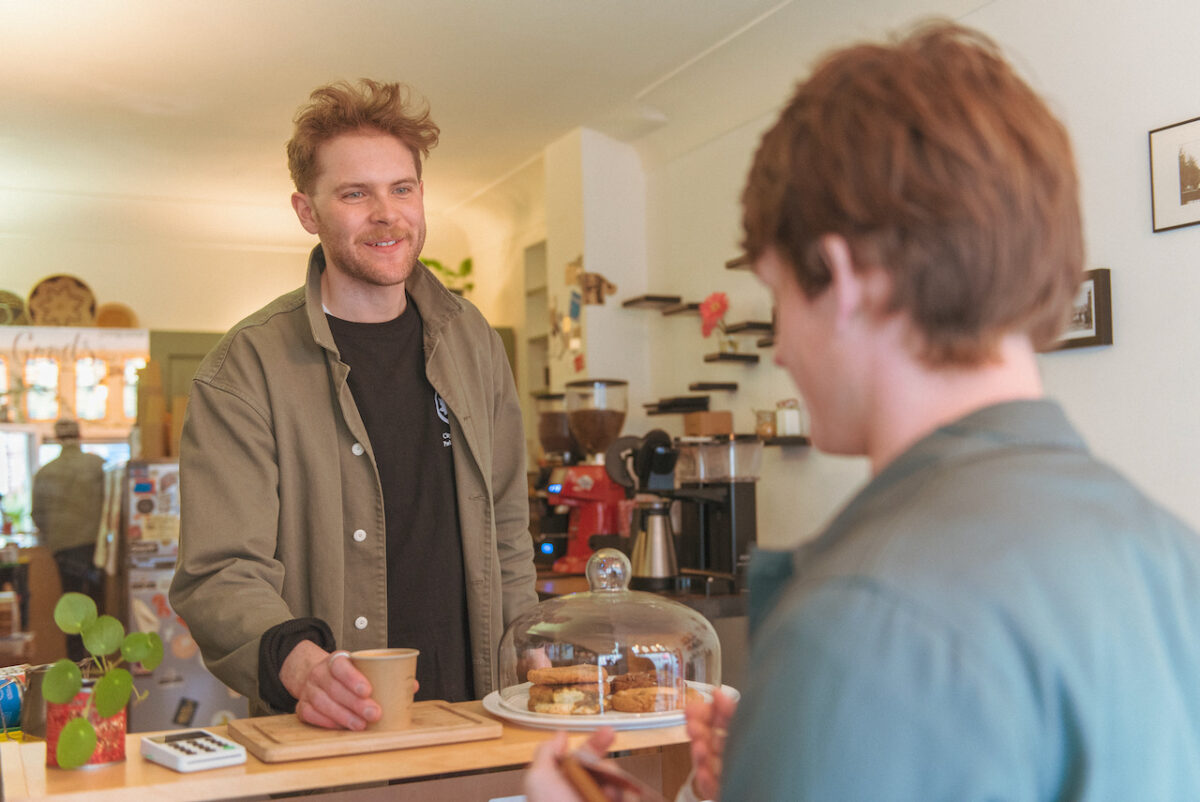
Cody’s uniqueness lies in the fact that he finds common ground between literature and specialty coffee, two seemingly unrelated things. For Cody, languages are not just a means to convey information or catchy phrases to sell a product.
“What I always say to my staff is “All the conversations with customers bring us an opportunity for them to become regulars, so it’s good to remember what customers order and create an atmosphere that anyone can be part of the scenes at the shop.” Perhaps, that’s why customers told us often, ‘I feel like I am part of this shop.’ or ‘I feel I am connected here with other people.’ Rarely does someone just stop by, order a cappuccino, and leave the store.”
Deepening our understanding of the individuality and diversity of people, evoking empathy, and connecting with people. Even though the theme has changed from literature to coffee, Cody’s stance remains unchanged as he continues to pursue ‘what languages can do.’
The taste, personality, and stories make people talkative, and it is surely not a coincidence that Cody came across the world of specialty coffee.
Originally written in Japanese by Tatsuya Nakamichi.

MY FAVORITE COFFEE
“It’s the coffee I make at home for my roommate. Not only do we drink the unique coffee together, but also we talk about the taste and appeal of the coffee. Having lived alone for a long time, I am really enjoying this new lifestyle that started six months ago. Even it’s just a cup of coffee brewed in a coffee maker at home, the coffee becomes something special that has a sense of adventure. It is a luxury to drink coffee with someone in an intimate setting. I love these “rituals” and “customs” that make me realize such things.”

Good Beans
- [Open]
- Mon-Sat: 9:00-17:00 / Sun: 10:00-17:00